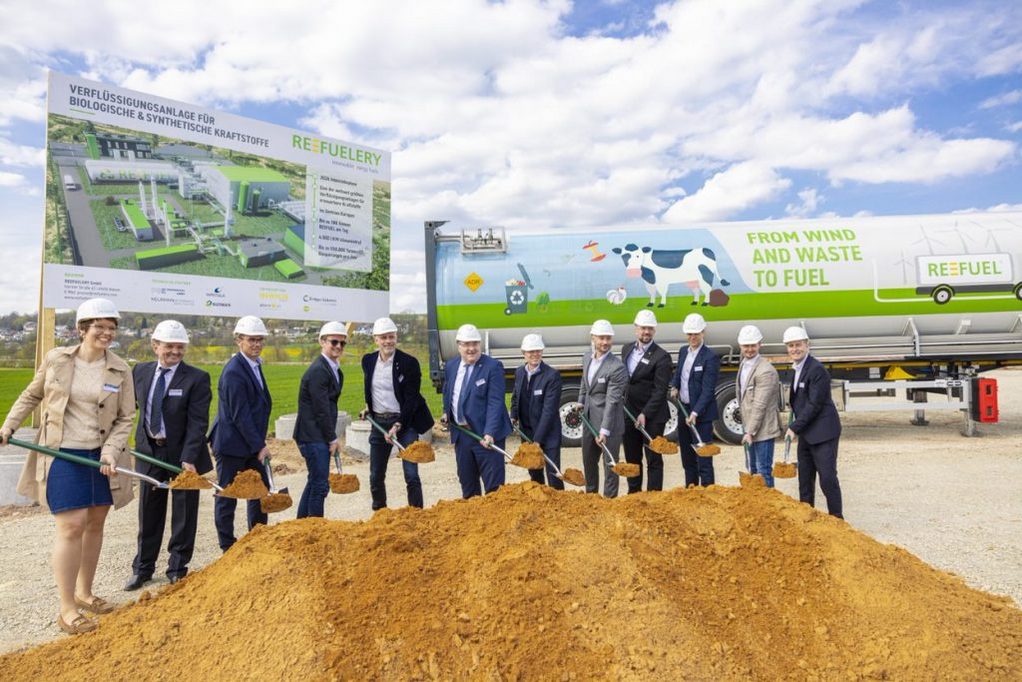Germany’s REEFUELERY, a joint venture of Erdgas Südwest and avanca, has officially started building its bio-LNG production plant worth about 50 million euros ($55 million) in Burghaun.
The groundbreaking ceremony for the facility near Fulda and with a capacity of up to 180 tons of bio-LNG per day took place.
REEFUELERY chose the location near Fulda due to its direct access to the MIDAL gas pipeline.
The bio-LNG will be used as an alternative fuel for freight and heavy-duty transportation to reduce CO2 emissions.
The plant can provide fuel for up to 4,500 heavy-duty vehicles, saving a total of up to 550,000 tons of CO2 per year compared with diesel fuel, the firm claims.
It will supply the fuel to Alternoil’s network of filling stations for trucks.
Alternoil, owned by avanca, owns a large network of LNG refueling stations in Germany.
REEFUELERY expects the bio-LNG plant, which it says is one of the world’s largest such plants, to go online in 2024.
Wartsila Gas Solutions, a unit of Finland’s Wartsila, has previously secured a contract to supply gas treatment system, liquefaction systems, control system, and motor control center for the whole plant.
Also, Germany-based industrial services provider Bilfinger will provide engineering, procurement, and construction services for the refueling facility as well as piping construction expertise.
Tags: BioLNG, CO2 Emissions, Germany, REEFUELERY



Recent Posts
Egypt Advances Maritime Decarbonisation with National Action Plan Backed by IMO
Fuelre4m unveils VIRDIS: A predictive AI breakthrough in global fuel distribution, powered by Five9nes
EXMAR Launches First Ammonia-Fueled Gas Carrier at HD Hyundai Mipo
Japan-Backed Green Hydrogen Centre Planned for Uttar Pradesh
JSW Group Outlines Major Push into Commercial and Heavy Electric Vehicles
Lloyd’s Register Grants Approval in Principle for KSOE’s Multi-Fuel Newcastlemax Bulk Carrier Design
Eureka Shipping Deploys HVO-Ready Cement Carrier Tamarack for Great Lakes Operations
Terntank Places Repeat Order for VentoFoil Wind Propulsion Units on Methanol-Ready Hybrid Tankers